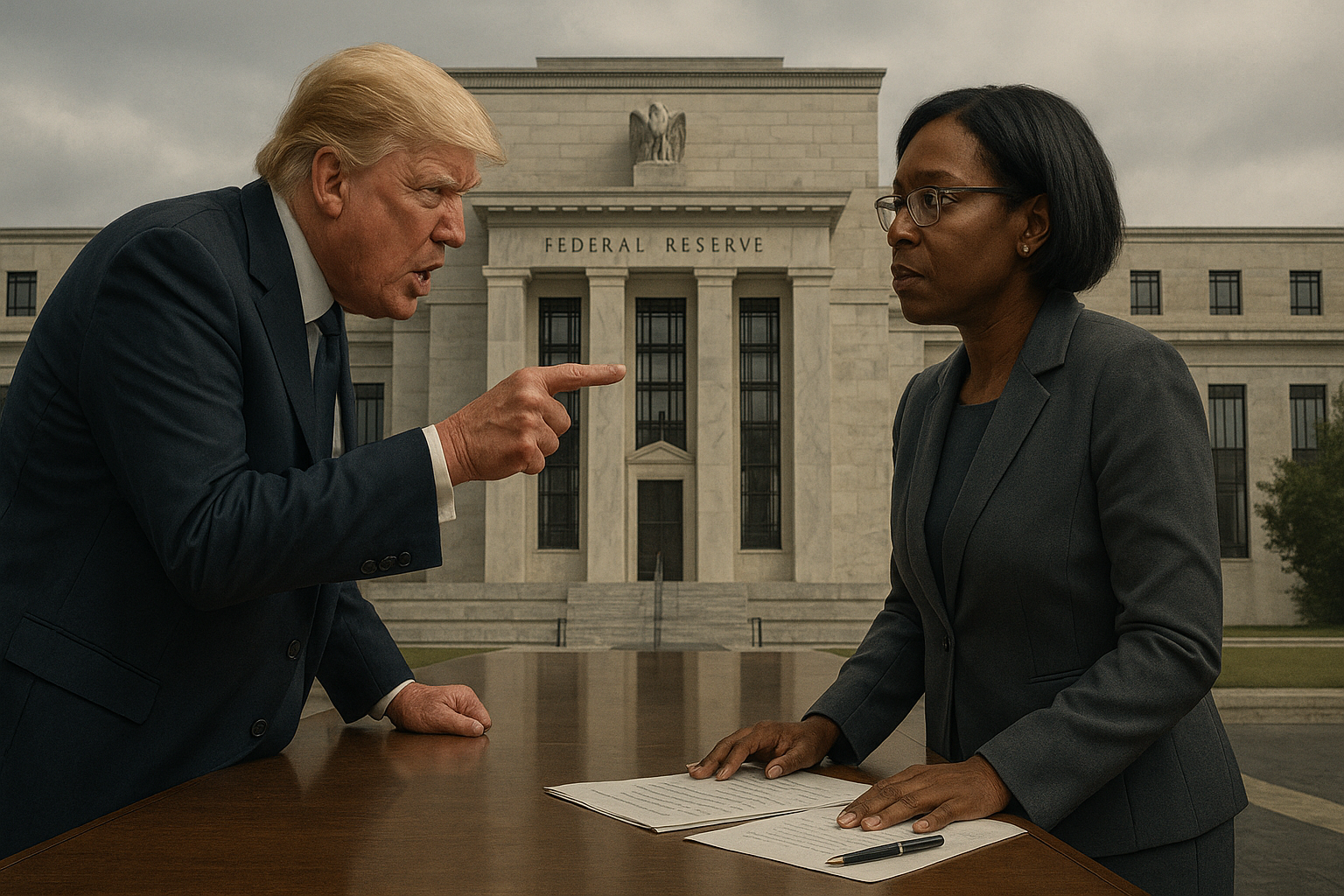Former President Donald Trump has set his sights on Federal Reserve Governor Lisa Cook, calling for her resignation in what appears to be an escalation of his long-running battle with America's central bank.
"Lisa Cook must resign," Trump reportedly declared, adding another chapter to his complicated—and often confrontational—relationship with the institution that steers America's monetary policy.
I've been tracking Trump's Fed commentary since his presidency, and this latest salvo follows a familiar pattern: publicly pressuring central bankers who are supposed to operate independently from political influence. What makes this particularly noteworthy is his targeting of Cook specifically.
Cook, who joined the Fed's Board of Governors in May 2022, represents something of a milestone—she's the first Black woman to serve in this capacity. Her background includes impressive academic credentials in economic history and international economics. Before Trump's comments, she'd largely maintained the traditional central banker's low profile, voting with the consensus on most monetary policy decisions.
So why single her out?
The timing is... interesting. The Fed has been walking an economic tightrope lately, trying to bring down inflation without crashing the entire economy into recession. Recent data suggests they might actually pull off the mythical "soft landing" that has eluded so many Fed chairs before.
Look, central banking isn't exactly a spectator sport for most Americans. It's technical, often boring, and deliberately opaque. But it matters enormously to everyday life—affecting everything from mortgage rates to job prospects.
Trump's history with the Fed has been nothing if not contradictory. During his presidency, he repeatedly criticized then-Chairman Jerome Powell (whom, let's remember, he appointed) for not cutting interest rates more aggressively. Then, when inflation accelerated, he criticized the Fed for keeping rates too low.
It's a bit like complaining that your doctor prescribed too much medicine, then too little, then blaming them for the side effects.
The bigger issue here goes beyond Cook herself. Central bank independence—the notion that monetary policy should be insulated from short-term political pressures—has been a cornerstone of modern economic governance. When politicians start treating Fed appointments like ideological battlegrounds (rather than technocratic positions), we risk undermining the Fed's ability to make necessary but unpopular decisions.
Having covered economic policy battles for years, I can tell you that markets generally prefer their central bankers boring and predictable. The minute investors think monetary policy is being driven by political considerations rather than economic ones, confidence erodes.
For her part, Cook has maintained the sphinx-like public persona typical of Fed governors. She hasn't responded to Trump's comments—and likely won't. That's part of the job.
As we head into another election season (does it ever really end?), the relationship between politics and monetary policy will remain contentious. The Fed's upcoming decisions on interest rate cuts—markets are pricing in multiple reductions for 2024—will face intense scrutiny.
In the meantime, Trump's pressure campaign continues. Whether it actually influences Fed policy is another question entirely—one that has significant implications for our economic future.




